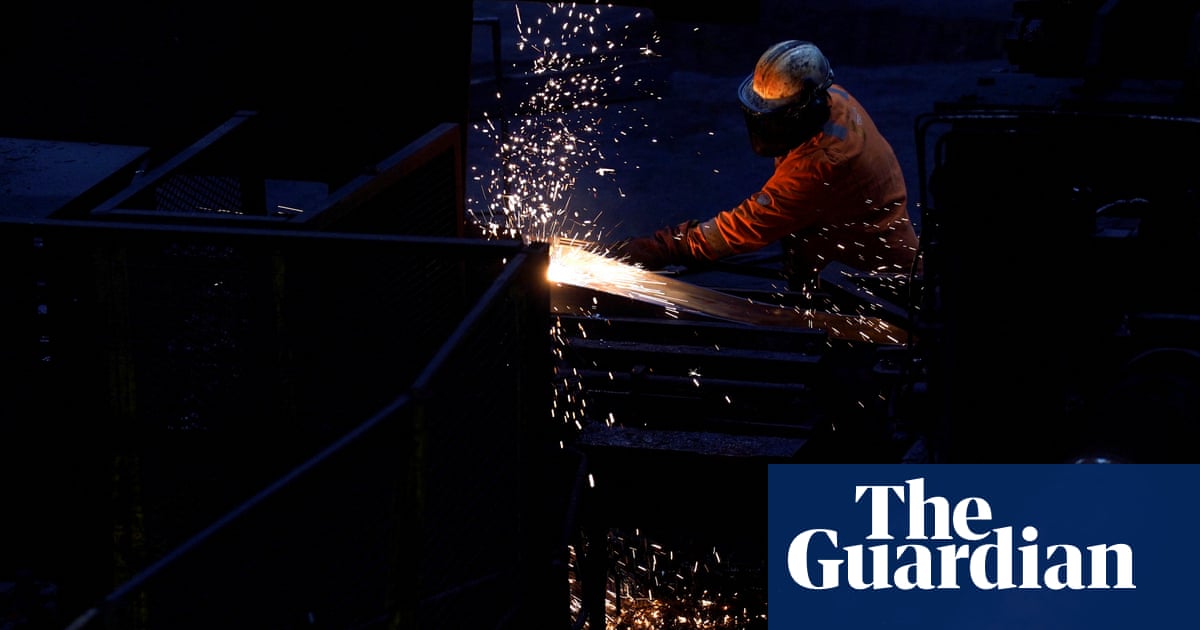Photo credit: www.theguardian.com
UK Government’s Quick Action to Save Steel Industry Amid Crisis
Next weekend, a cargo ship carrying over 50,000 tonnes of coking coal from Australia is set to arrive at the Immingham port. In typical circumstances, this event might not draw much attention. However, the docking of the Navios Alegria will signify a crucial moment for the UK government as it strives to keep the nation’s last remaining steel furnaces operational.
In a move reflecting the urgency of the situation, Members of Parliament were summoned back from their Easter break last Saturday to pass emergency legislation granting the government control over British Steel. This company manages the UK’s final two blast furnaces capable of producing steel from its core ingredients—coke and iron ore.
Discussions between the government and Jingye Group, the Chinese company that owns the Scunthorpe plant, collapsed ten days ago after the latter rejected a £500 million proposal aimed at sustaining the blast furnaces. This breakdown of talks led to suspicions among government officials that Jingye intended to cease operations, regardless of the consequences.
High-ranking officials in Downing Street suspect that this decision stems from a broader agenda in Beijing to use the UK as a market for surplus Chinese steel, particularly in light of tariff restrictions imposed by the Trump administration.
“When it became evident that they were moving towards shutdown, it was clear they were trying to dismantle our steel production,” one senior official disclosed to aides. Another government source expressed concern, stating, “They opted to close the plant because China needs to offload its steel stock.” Jingye has contended that the plant is not financially viable, suffering losses estimated at £700,000 each day.
In light of these developments, Labour leader Keir Starmer requested real-time updates as the situation evolved. When informed early Friday morning that ownership of the Navios Alegria’s cargo had shifted from British Steel to Jingye, concerns heightened regarding the coal necessary for the furnaces’ operation. Unions claimed that Jingye even turned away another vessel, the Amstel Tiger, which was already en route from the US with additional coking coal.
The Prime Minister convened a meeting of the cabinet at 9 a.m. on Friday, emphasizing the need to reconvene for another discussion later that day. His apprehension about steelworkers potentially becoming casualties of the standoff prompted him to ask the attorney general to explore how to offer protection for workers resisting orders from Jingye executives. Additionally, he resolved to recall Parliament on Saturday and visit Scunthorpe in a display of solidarity with steelworkers.
A pressing concern among officials was ensuring the delivery of the Navios Alegria’s cargo. Starmer argued that the transfer of cargo ownership was unlawful. As government legal teams investigated, aides devised a plan to divert the Navios Alegria—currently traveling up the coast of Liberia—toward Gibraltar. The intent was to secure the cargo in a British port, where it could be claimed by the government.
This strategy, dubbed “Steelback” by aides—a playful nod to a historical British regiment—was meant to safeguard against the looming crisis concerning steel supplies.
Officials also began exploring alternative sources for coking coal, looking into partnerships with commodity traders and Tata Steel as potential suppliers. As the situation unfolded, business secretary Jonathan Reynolds addressed the Commons, signaling that the fate of steel production in the UK remained uncertain.
“Traders were informing us that deliveries were unfeasible on short notice,” noted a senior source from No. 10. “We felt edgy about the situation with the Liberian vessel.” At one point, debates arose about the potential necessity of deploying naval forces to escort coal shipments into Immingham.
A pivotal moment arrived on Saturday afternoon. Government attorneys concluded that the individual responsible for relinquishing the Navios Alegria’s cargo did not possess the necessary authority, reverting the legal status of the cargo back to British Steel. This discovery shifted the atmosphere in Downing Street. Starmer was briefed while in Scunthorpe, and by 6 p.m., the emergency legislation received royal assent, empowering ministers to oversee British Steel operations.
Subsequent shipments of coking coal and iron ore from the US arrived at Immingham without further incident, following government arrangements for payment to secure necessary supplies.
Officials articulated that their actions stemmed from a recognition of steel production as a matter of national security amid an escalating global trade confrontation and European military realignments. There appears to be a consensus that this crisis might prompt a reevaluation of what constitutes critical national infrastructure. While steel does not currently fit this classification, unions have advocated for a reassessment in light of increasing steel tariffs.
Yet, the future of the Scunthorpe facility and the overall state of the British steel industry remain precarious. The existing blast furnaces are nearing their operational limits, and potential replacements, like cleaner electric arc furnaces, will not produce steel from raw materials but rather from recycled scrap. The government is anticipated to release a steel strategy soon, which will address the pressing question of whether the UK should continue producing virgin steel.
In parallel, the government is actively pursuing private sector investment to avert the need for nationalization of British Steel, a scenario the Conservatives were keen to bypass when Jingye emerged as the sole bidder back in 2019. Should no new bidders surface in the coming year, ministers may have contentious questions regarding financial implications for taxpayers on their hands.
Source
www.theguardian.com

